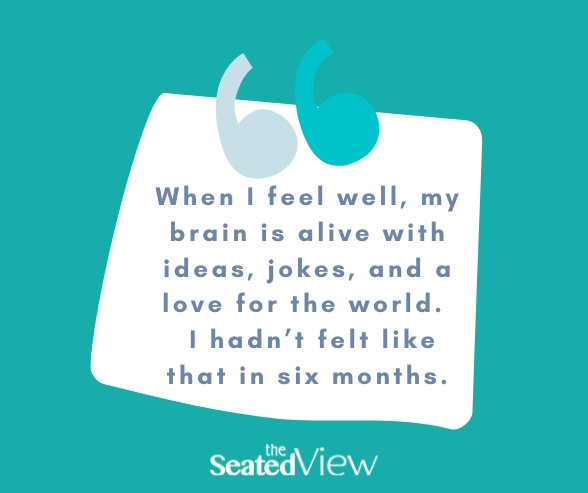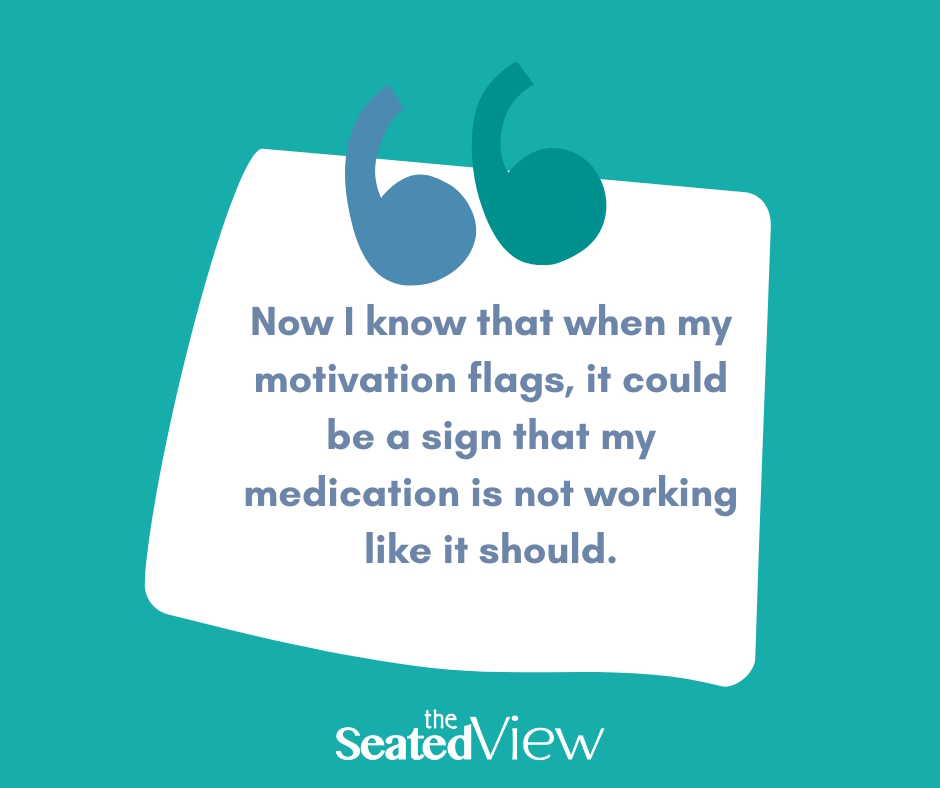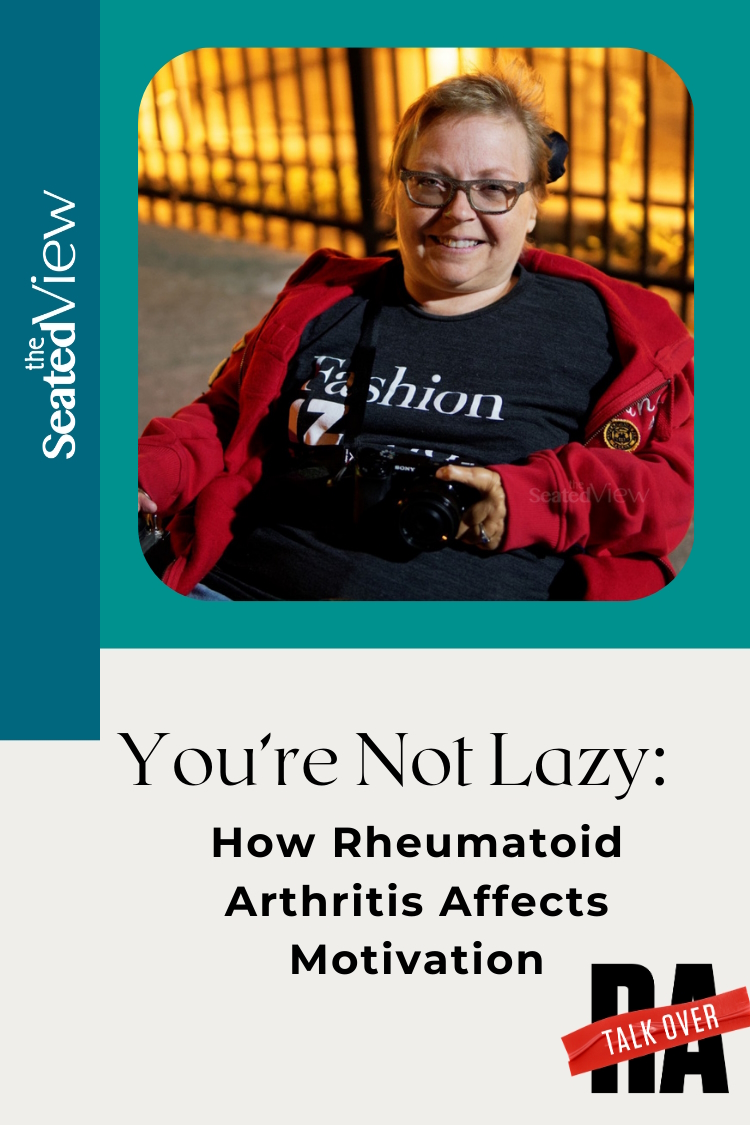You’re Not Lazy: How Rheumatoid Arthritis Affects Motivation

Motivation is your get up and go, determination, the drive and interest in doing something. Whether it’s exercise, brushing your teeth, writing (or reading) a book, painting a picture or wall, making that call to your insurance company, or simply getting out of bed on a high-pain day. All of it takes motivation. One of the myths in our culture is that motivation is directly linked to willpower and if you’re not motivated, it means you’re lazy, which comes with significant stigma. But when you live with rheumatoid arthritis (RA), it’s much more complicated. In this post, I’ll bust some myths about motivation and willpower, discuss the connection with RA, as well as share tips on how to nourish motivation when you live with chronic illness.
My participation in the 2024 Talk Over RA Days of Impact is supported by AbbVie which has no editorial role. All opinions and views are my own. They should not be a substitute for medical advice by a doctor who knows you and your RA.
Factors Affecting Motivation
I sat at the sink, staring at my toothbrush, in the middle of the nightly argument with myself: To brush my teeth or leave it for tomorrow. For months now, this simple task that ended my day had seemed overwhelming, and it wasn’t the only one. Every task I undertook during the day from making a cup of tea to writing an article had felt insurmountable, each requiring battling my need to just sit — or even better, lie down — in order to force myself to get started and to continue. I was exhausted but having to kick myself into gear each and every day, multiple times a day, drained me even further.
I was in the middle of a medication switch required by my funding source, and it was not going well. My new rheumatologist looked at my joints, saying there seemed to be no change to my remission. But I knew from experience that the fatigue and a physical feeling of heaviness are the first signs of my RA awakening. That’s hard to explain someone who’s never met you before. My new rheumatologist suggested that perhaps it was caused by my fibromyalgia, perhaps a touch of anxiety or depression. Which seemed reasonable given that by the time of the appointment, the first two alternatives to my regular medication had triggered comorbidities and she was writing a prescription for a third option.
Motivation can be affected by a number of things. Of course, I was depressed after being required to switch from the medication that had kept me into remission for 18 years. And of course, I was anxious and feeling physically unwell after two different comorbidities had partied all over my body for the past six months. According to the Talk Over RA website, a full 79% of people with RA have fatigue and if you live with this, you know it’s not just about being tired. It’s bone- and soul-crushing.

How I Made the Connection Between RA and Motivation
But it was more than that. This is how I knew:
When I feel well, my brain is alive with ideas, jokes, and a love for the world. The only way I can describe it is by using the word ‘nimble,’ the mental ability to jump from topic to topic like an Olympic gymnast, the wonderful new ideas that trip over themselves to get to centre stage, the desire to do all of these exciting things, as well as the somewhat deluded belief that I can do them all and more besides. At the time of my conversation with the new rheumatologist, I hadn’t felt like that in six months. That is, except for a very brief interlude between medication alternative #1 and #2 when I took the last dose of my old friend, the medication that had kept me in remission for almost 2 decades, while waiting for the next support program to call me. Within a day or two of that injection, I felt like myself again. I had drive, motivation, my brain felt light and nimble, and I was eager to knock some work out of the park, write the next chapter in my novel, and arrange lunches with my friends. That interest in life and the desire to taste it all disappeared when I started medication alternative #2 and it hadn’t come back since.
I’ve read enough studies about RA to know that what we see in injured or ill animals — withdrawal to a hiding place, curling up in a ball to sleep (fatigue) — may also affect people. It’s called “sickness behaviour,” and may be related to a particular inflammatory protein (cytokines). I have also read studies indicating that inflammation can cross the blood-bring barrier, which may explain why untreated RA is often accompanied by brain fog, memory issues, and other cognitive issues.
But to be honest, although studies help us understand RA, my personal experience is enough for me. The experiments with switching medication told me that what I suspected is true: my level of motivation is directly affected by the state of my RA. To me, this was proven by that one dose of my tried-and-true in the middle of trying alternatives. It was proven yet again when I was approved to go back to the medication I’d been on for all these years. By the second dose, I felt like myself again: I desired a social life, and was filled with ideas for the next scenes in my book. My body has taken longer to catch up, healing from seven months of setbacks, but I’m getting there. More on how I’m working on that in tomorrow’s post.

I’m ecstatic to be back on the medication that works for me, but I am also excited about what I discovered over the past year. Now I know that when my motivation flags, it could be a sign that my medication is not working like it should. And I also know that the right medication can get me back to a nimble brain and the desire to do it all (even if my body can’t quite cash the cheque my mind likes to write).
Watch my YouTube video on Motivation and RA:
RA has many symptoms in addition to joint swelling and pain, but often these can be difficult to explain to others, especially doctors who are new to you. The Talk Over RA Discussion Guide can help you sort through your symptoms and identify how they affect your day-to-day and dreams of the future. This can help you have better conversations with your medical team and serve as the documentation you may need to make the point (as opposed to “just a feeling”). When you and your doctor are on the same page, you can take action so you can get back to your life.

3 Comments
Read More
Discover what else I've been writing about...
















I would like to know more about vasculitis. My husband suffers from it.
How well I know this …washing my face at night is often more than I can manage .
I so enjoy your articles
You are an international treasure, Lene. Your dedication to your own health, your research and care for all affected by RA is such a gift. Thank you for another wonderful article.